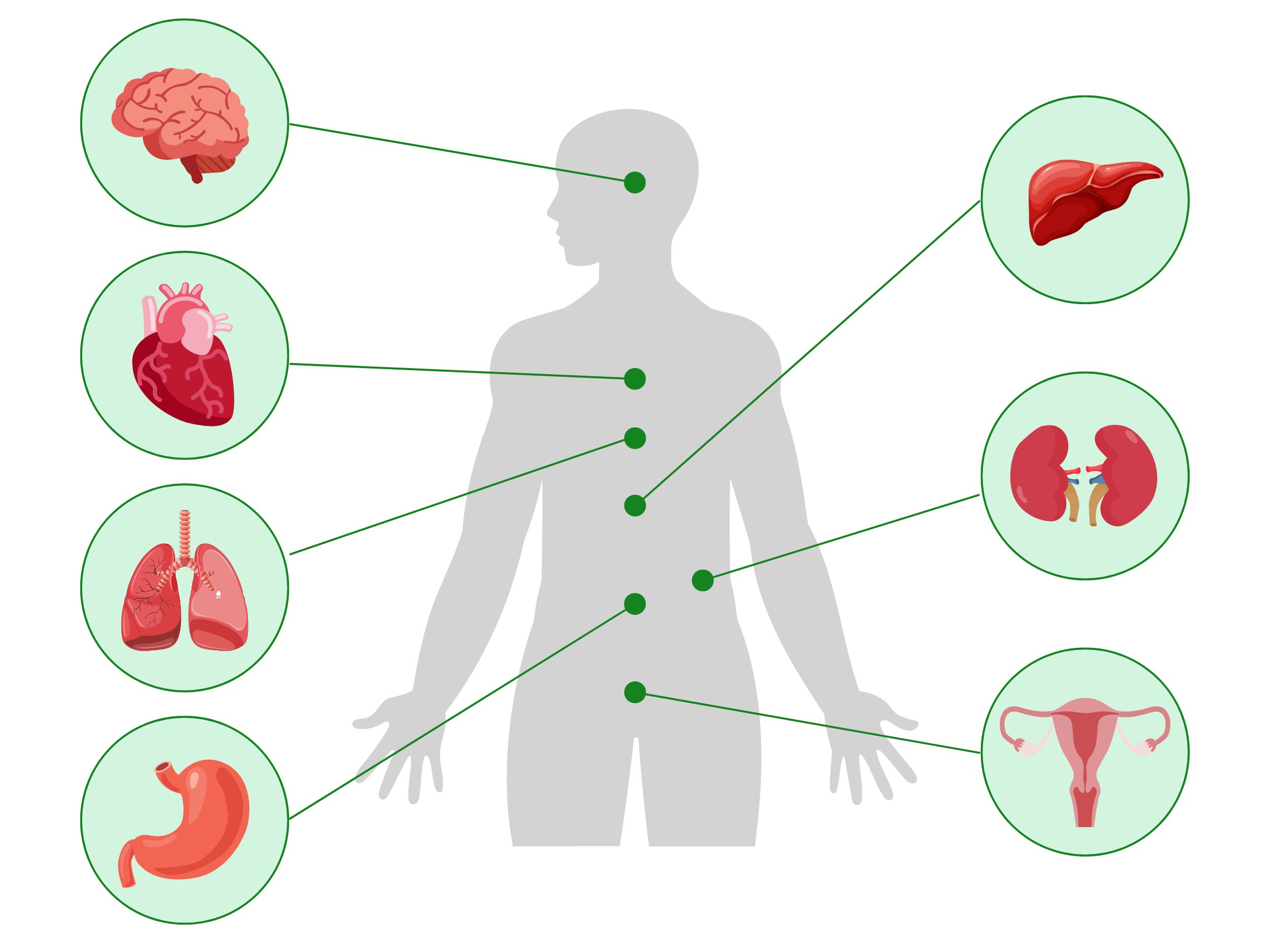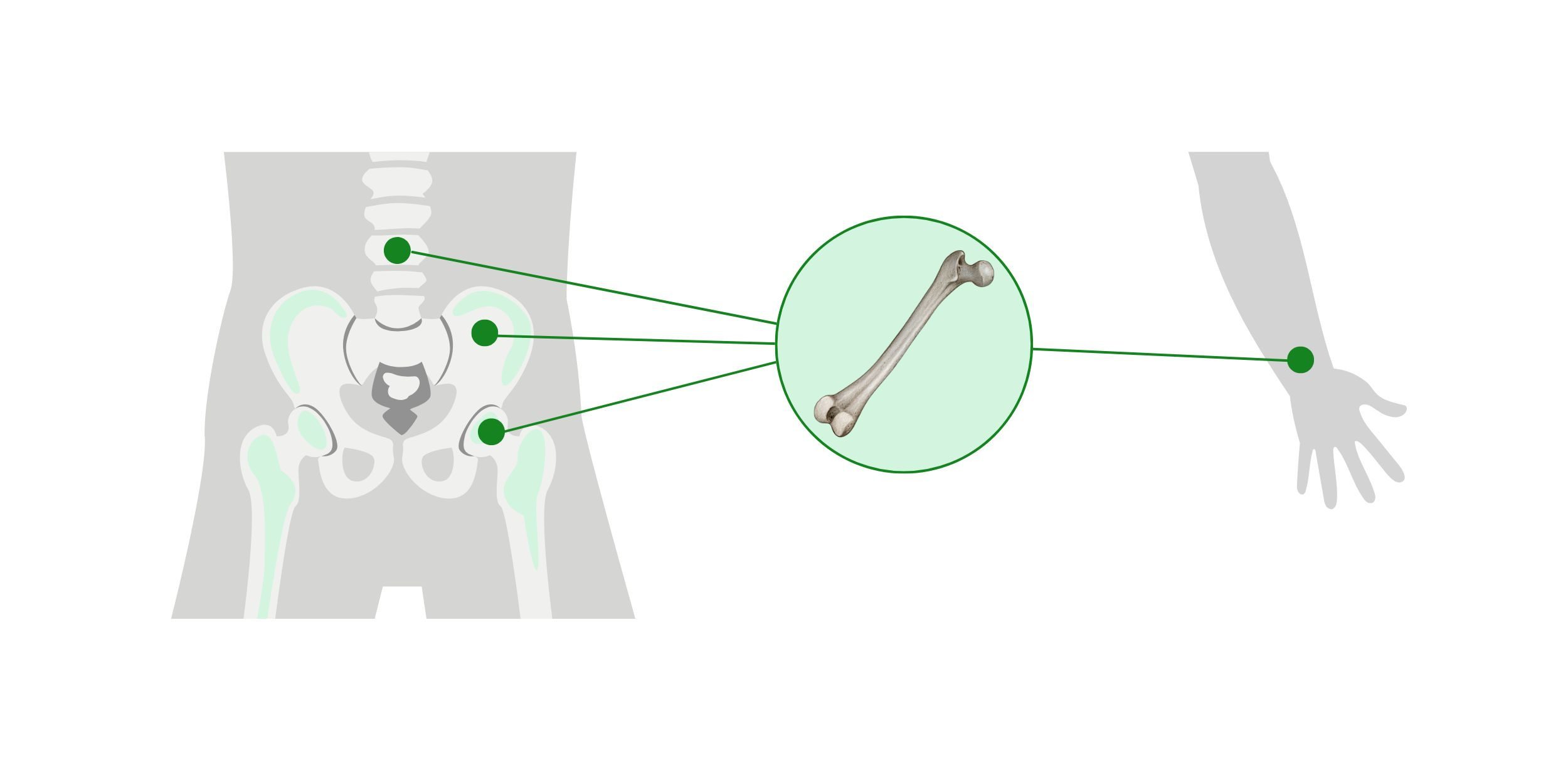Dietetics
Dietetics
Gold Coast
As an essential part of allied health, our Gold Coast dietitians work alongside physiotherapists, exercise physiologists, and our other healthcare professionals to provide holistic, evidence-based care. By integrating medical nutrition therapy with broader health strategies, dietetics helps individuals achieve their health goals, whether it’s optimising sports performance, managing a medical condition, or simply improving quality of life. Partnering with a dietitian as part of an integrated Atkins Health program can unlock better health outcomes.
What is Dietetics and What do Dietitians Do?
Dietetics is the science of nutrition and the application of food and diet to promote health and manage medical conditions. Dietitians are healthcare professionals who use clinically-proven methods to assess, diagnose, and treat dietary and nutritional issues. Their focus is on how food impacts overall health, and they work with individuals or groups to develop tailored nutrition plans based on their specific needs. These include:
- Managing Medical Conditions: Dietitians help people manage chronic diseases like diabetes, heart disease, digestive disorders, kidney disease, and more, through diet and nutrition.
- Food Allergies & Sensitivities: They can help identify food allergies or intolerances and guide you on how to manage your diet without missing out on essential nutrients.
- Nutritional Support: If you have specific nutritional needs due to pregnancy, breastfeeding, or ageing, dietitians provide guidance to ensure you’re getting the right nutrients.
- Sports Nutrition: Dietitians work with athletes to optimise performance and recovery, offering advice on pre- and post-exercise nutrition.
- Healthy Eating Habits: They help individuals improve their overall eating habits, promoting balanced, nutritious diets that lead to better long-term health and wellness.
- Eating Disorders: Dietitians support people with eating disorders like anorexia, bulimia, and binge eating, helping to restore healthy relationships with food.
- Gastrointestinal Issues: For those dealing with conditions like IBS, Coeliac Disease, or Crohn’s Disease, dietitians can recommend diets that minimise symptoms and promote gut health.

Overall, dietitians play a key role in helping you make informed food choices that lead to a healthier lifestyle, improve medical outcomes, and enhance overall well-being. Whether you’re fit and healthy, recovering from illness or surgery – or living with a chronic health condition, you’re an athlete, or you’re planning a family, our dietitian can provide expert advice and guidance at all life’s stages.
Dietician | Dietitian | Nutritionist
What’s the difference?


In Australian (British) English we use “dietitian” to refer to an allied health professional qualified to practice the science of dietetics. “Dietician” is more commonly used in American English.
Nutritionist is another term that causes confusion. In Australia all dietitians are nutritionists, but not all nutritionists are dietitians; The dietetic profession is regulated and dietitians have graduated with an accredited dietetics degree. Nutritionists without this cannot call themselves a dietitian.
At Atkins Health our dietitians are accredited and able to provide professional advice about dietetics and nutrition. That’s all you need to remember when working with one of our team. You can relax knowing that you’re dealing with accredited health professionals.
When Should I See a Dietitian?

- You have a chronic health condition
- You have food intolerances or allergies
- You’re pregnant or breastfeeding
- You’re trying to improve your eating habits
- You struggle with disordered eating
- You’re an athlete or active individual
- You’re dealing with digestive discomfort or gut-related issues
- You want to prevent future health issues
- You’re recovering from surgery or an illness
- You need help navigating special diets
A dietitian follows a personalised, research-driven approach, beginning with a comprehensive assessment of medical history, lifestyle, and dietary habits, then developing a tailored nutrition plan with ongoing support, education, and adjustments to help patients achieve their health goals.
Importance of Nutrition for Health & Wellbeing
A diet rich in whole foods, lean proteins, healthy fats, and essential vitamins not only fuels the body but also aids in recovery, enhances mood, and promotes long-term vitality. Conversely, poor nutrition can lead to fatigue, weakened immunity, and a higher likelihood of developing preventable diseases.
In Australia we are fortunate to have access to some of the highest-quality food in the world, from fresh produce and sustainably sourced proteins to fortified grains and dairy products. Expert advice and guidance provided by a dietitian helps us in making informed choices that support our health and well-being at every stage of life. By prioritising nutritious eating habits, we can take full advantage of the benefits that come with a high-quality food supply to enhance our quality of life.
The image below highlights some of our major organs, the importance of nutrition and a healthy diet for their wellbeing and function, and how our dietitian can support improved health outcomes. Click on each of the highlighted areas to learn more.

Fertility & Reproductive Health
Nutrition plays a crucial role in reproductive health, providing the essential nutrients needed for fertility, hormonal balance, and a healthy pregnancy. A well-balanced diet rich in folate, iron, omega-3 fatty acids, and antioxidants supports egg and sperm quality, regulates menstrual cycles, and optimises conditions for conception. Maintaining a healthy weight and managing conditions like polycystic ovary syndrome (PCOS) or endometriosis through diet, can further enhance fertility outcomes. Dietitians work closely with individuals and couples trying to start a family, creating tailored nutrition plans that support fertility, prenatal health, and overall reproductive wellness, giving the best possible start to a growing family.
Cardiovascular Health
Good nutrition is fundamental to cardiovascular health, helping to prevent and manage conditions such as high blood pressure, high cholesterol, and heart disease. A balanced diet rich in whole grains, lean proteins, healthy fats, and fibre supports healthy blood vessels, reduces inflammation, and keeps the heart functioning at its best. Nutrients like omega-3 fatty acids, potassium, and antioxidants play a crucial role in maintaining optimal circulation and reducing the risk of plaque buildup in the arteries. Dietitians provide expert guidance in creating heart-friendly meal plans tailored to individual needs, helping people make sustainable dietary choices that protect their heart health for the long term.
Lung Health & Respiratory Function
Nutrition plays a crucial role in lung health, supporting respiratory function and helping manage conditions like asthma and chronic obstructive pulmonary disease (COPD). A well-balanced diet rich in antioxidants, omega-3 fatty acids, and essential vitamins, such as vitamins C, D, and E, helps reduce inflammation in the airways and strengthen the immune system, lowering the risk of respiratory infections. Maintaining a healthy weight is also vital, as excess weight can put pressure on the lungs and make breathing more difficult. Dietitians develop tailored nutrition plans to support lung function, ensuring individuals with respiratory conditions receive the right balance of nutrients to improve oxygen efficiency, reduce symptom flare-ups, and enhance overall quality of life.
Stomach, Intestinal & Digestive Health
Dietetics and nutrition are essential for maintaining a healthy stomach and digestive system, playing a key role in managing common conditions like irritable bowel syndrome (IBS), acid reflux, and bloating. A well-balanced diet rich in fibre, probiotics, and adequate hydration supports gut health by promoting regular bowel movements, reducing inflammation, and maintaining a strong gut microbiome. For individuals with IBS, dietitians often implement strategies such as the Low FODMAP diet (FODMAP are short-chain carbohydrates that are poorly absorbed in the small intestine and ferment in the colon), which helps identify and eliminate trigger foods that cause discomfort. Proper nutrition also aids in balancing gut bacteria, reducing digestive distress, and ensuring optimal nutrient absorption. Through personalised dietary plans, dietitians help individuals achieve better digestive health, alleviating symptoms and improving overall well-being.
Liver Health
The liver is one of the body’s most vital organs, responsible for detoxification, metabolism, and nutrient storage, making its health essential for overall well-being. A balanced diet rich in lean proteins, whole grains, and antioxidant-packed fruits and vegetables supports liver function by reducing inflammation and preventing fatty liver disease. Limiting processed foods, excessive alcohol, and added sugars can also help prevent liver damage and conditions like cirrhosis or non-alcoholic fatty liver disease (NAFLD). Dietitians play a key role in liver health by creating tailored nutrition plans that promote detoxification, support liver regeneration, and help manage conditions such as hepatitis or liver fibrosis. With expert dietary guidance, individuals can improve their liver health and enhance their body’s ability to process toxins and maintain optimal metabolic function.
Renal Health
The kidneys play a vital role in filtering waste, balancing fluids, and regulating essential nutrients in the body, making kidney health crucial for overall well-being. A nutrient-rich diet can help protect kidney function by managing blood pressure, reducing inflammation, and preventing conditions like kidney disease or kidney stones. Limiting sodium, phosphorus, and excessive protein intake can ease strain on the kidneys, while staying hydrated and consuming foods high in antioxidants – such as berries, leafy greens, and healthy fats – can support optimal function. Dietitians specialise in renal health, providing tailored nutrition plans that help individuals manage kidney conditions, slow disease progression, and maintain overall function. With the right dietary guidance, people can support their kidneys and improve long-term health outcomes.
Cognitive Health & Brain Function
Proper nutrition is essential for cognitive health, playing a key role in brain function, memory, and overall mental well-being. For individuals living with dementia, dietetics and nutrition can help slow cognitive decline, support mood stability, and enhance quality of life. A diet rich in antioxidants, omega-3 fatty acids, and essential vitamins – such as B vitamins and vitamin D – has been shown to protect brain cells and reduce inflammation, both of which are crucial in managing neurodegenerative conditions. Dietitians work closely with individuals and their carers to develop tailored nutrition plans that address specific needs, including maintaining a healthy weight, preventing malnutrition, and managing conditions like diabetes or hypertension that can further impact brain health. Through evidence-based dietary strategies, dietetics plays a vital role in supporting cognitive function and helping individuals with dementia live as independently and comfortably as possible.

Fertility & Reproductive Health
Nutrition plays a crucial role in reproductive health, providing the essential nutrients needed for fertility, hormonal balance, and a healthy pregnancy. A well-balanced diet rich in folate, iron, omega-3 fatty acids, and antioxidants supports egg and sperm quality, regulates menstrual cycles, and optimises conditions for conception. Maintaining a healthy weight and managing conditions like polycystic ovary syndrome (PCOS) or endometriosis through diet, can further enhance fertility outcomes. Dietitians work closely with individuals and couples trying to start a family, creating tailored nutrition plans that support fertility, prenatal health, and overall reproductive wellness, giving the best possible start to a growing family.
Cardiovascular Health
Good nutrition is fundamental to cardiovascular health, helping to prevent and manage conditions such as high blood pressure, high cholesterol, and heart disease. A balanced diet rich in whole grains, lean proteins, healthy fats, and fibre supports healthy blood vessels, reduces inflammation, and keeps the heart functioning at its best. Nutrients like omega-3 fatty acids, potassium, and antioxidants play a crucial role in maintaining optimal circulation and reducing the risk of plaque buildup in the arteries. Dietitians provide expert guidance in creating heart-friendly meal plans tailored to individual needs, helping people make sustainable dietary choices that protect their heart health for the long term.
Lung Health & Respiratory Function
Nutrition plays a crucial role in lung health, supporting respiratory function and helping manage conditions like asthma and chronic obstructive pulmonary disease (COPD). A well-balanced diet rich in antioxidants, omega-3 fatty acids, and essential vitamins, such as vitamins C, D, and E, helps reduce inflammation in the airways and strengthen the immune system, lowering the risk of respiratory infections. Maintaining a healthy weight is also vital, as excess weight can put pressure on the lungs and make breathing more difficult. Dietitians develop tailored nutrition plans to support lung function, ensuring individuals with respiratory conditions receive the right balance of nutrients to improve oxygen efficiency, reduce symptom flare-ups, and enhance overall quality of life.
Stomach, Intestinal & Digestive Health
Dietetics and nutrition are essential for maintaining a healthy stomach and digestive system, playing a key role in managing common conditions like irritable bowel syndrome (IBS), acid reflux, and bloating. A well-balanced diet rich in fibre, probiotics, and adequate hydration supports gut health by promoting regular bowel movements, reducing inflammation, and maintaining a strong gut microbiome. For individuals with IBS, dietitians often implement strategies such as the Low FODMAP diet (FODMAP are short-chain carbohydrates that are poorly absorbed in the small intestine and ferment in the colon), which helps identify and eliminate trigger foods that cause discomfort. Proper nutrition also aids in balancing gut bacteria, reducing digestive distress, and ensuring optimal nutrient absorption. Through personalised dietary plans, dietitians help individuals achieve better digestive health, alleviating symptoms and improving overall well-being.
Liver Health
The liver is one of the body’s most vital organs, responsible for detoxification, metabolism, and nutrient storage, making its health essential for overall well-being. A balanced diet rich in lean proteins, whole grains, and antioxidant-packed fruits and vegetables supports liver function by reducing inflammation and preventing fatty liver disease. Limiting processed foods, excessive alcohol, and added sugars can also help prevent liver damage and conditions like cirrhosis or non-alcoholic fatty liver disease (NAFLD). Dietitians play a key role in liver health by creating tailored nutrition plans that promote detoxification, support liver regeneration, and help manage conditions such as hepatitis or liver fibrosis. With expert dietary guidance, individuals can improve their liver health and enhance their body’s ability to process toxins and maintain optimal metabolic function.
Renal Health
The kidneys play a vital role in filtering waste, balancing fluids, and regulating essential nutrients in the body, making kidney health crucial for overall well-being. A nutrient-rich diet can help protect kidney function by managing blood pressure, reducing inflammation, and preventing conditions like kidney disease or kidney stones. Limiting sodium, phosphorus, and excessive protein intake can ease strain on the kidneys, while staying hydrated and consuming foods high in antioxidants – such as berries, leafy greens, and healthy fats – can support optimal function. Dietitians specialise in renal health, providing tailored nutrition plans that help individuals manage kidney conditions, slow disease progression, and maintain overall function. With the right dietary guidance, people can support their kidneys and improve long-term health outcomes.
Cognitive Health & Brain Function
Proper nutrition is essential for cognitive health, playing a key role in brain function, memory, and overall mental well-being. For individuals living with dementia, dietetics and nutrition can help slow cognitive decline, support mood stability, and enhance quality of life. A diet rich in antioxidants, omega-3 fatty acids, and essential vitamins – such as B vitamins and vitamin D – has been shown to protect brain cells and reduce inflammation, both of which are crucial in managing neurodegenerative conditions. Dietitians work closely with individuals and their carers to develop tailored nutrition plans that address specific needs, including maintaining a healthy weight, preventing malnutrition, and managing conditions like diabetes or hypertension that can further impact brain health. Through evidence-based dietary strategies, dietetics plays a vital role in supporting cognitive function and helping individuals with dementia live as independently and comfortably as possible.

Bone Health

Diet plays a crucial role in bone health, especially for those at risk of osteopenia and osteoporosis, conditions that weaken bones and increase fracture risk. The spine, hips, pelvis and wrists are most commonly affected, making mobility and independence major concerns. High-risk groups include postmenopausal women, older adults, and individuals with a family history of osteoporosis or nutrient deficiencies.
A diet rich in calcium, vitamin D, protein, and magnesium is essential for maintaining bone density and strength. Dietitians provide expert guidance, helping individuals optimise their nutrient intake, incorporate bone-supporting foods, and adopt lifestyle strategies to slow bone loss, reduce fracture risk, and support lifelong skeletal health.
Bone Society is a popular group class we offer that focuses on improving bone health, reducing symptoms of osteoporosis, and addressing the risk of falls. In conjunction with a tailored dietary plan it provides important guidance on what can be done to improve and protect bone health. Learn more about our Bone Society classes.

Bone Health
Diet plays a crucial role in bone health, especially for those at risk of osteopenia and osteoporosis, conditions that weaken bones and increase fracture risk. The spine, hips, pelvis and wrists are most commonly affected, making mobility and independence major concerns. High-risk groups include postmenopausal women, older adults, and individuals with a family history of osteoporosis or nutrient deficiencies.
A diet rich in calcium, vitamin D, protein, and magnesium is essential for maintaining bone density and strength. Dietitians provide expert guidance, helping individuals optimise their nutrient intake, incorporate bone-supporting foods, and adopt lifestyle strategies to slow bone loss, reduce fracture risk, and support lifelong skeletal health.
Bone Society is a popular group class we offer that focuses on improving bone health, reducing symptoms of osteoporosis, and addressing the risk of falls. In conjunction with a tailored dietary plan it provides important guidance on what can be done to improve and protect bone health. Learn more about our Bone Society classes.
Optimum Nutrition for all Stages of Life
Nutritional needs evolve throughout life, from infancy to older age, making it essential to adapt dietary choices to support growth, energy, and overall health. Infants require nutrient-dense foods for development, while children and teenagers need balanced nutrition to fuel growth and cognitive function. Adults benefit from diets that sustain energy, support metabolism, and prevent chronic disease, while older adults may require increased protein, calcium, and key vitamins to maintain muscle mass and bone health. Working with a dietitian ensures optimal nutrition at every stage, providing expert guidance to meet changing needs, prevent deficiencies, and promote long-term well-being through tailored, sustainable dietary strategies.

Allergies & Food Sensitivities
Food allergies and sensitivities can significantly impact daily life, causing digestive issues, inflammation, and even severe reactions. Avoiding allergens while maintaining a balanced, satisfying diet requires careful planning to prevent nutrient deficiencies and ensure variety. Dietitians play a crucial role in helping individuals identify trigger foods, find safe and nutritious alternatives, and create meal plans that support overall health. They provide expert guidance on reading food labels, dining out safely, and preparing allergen-free meals without sacrificing taste or nutrition. With tailored strategies, dietitians help people navigate food sensitivities confidently, ensuring they remain well-nourished and enjoy a diverse, fulfilling diet.

Eating Disorders
Eating disorders, such as anorexia, bulimia, ARFID, and binge eating disorder, can severely impact physical health, mental well-being, and overall quality of life. These conditions often lead to malnutrition, digestive issues, heart complications, and emotional distress. Recovery requires more than just eating differently; it involves rebuilding a healthy relationship with food and body image. Dietitians play a vital role in this process by providing compassionate, evidence-based guidance, helping individuals restore balanced eating patterns, address nutrient deficiencies, and develop sustainable habits. Through personalised support, meal planning, and education, dietitians empower individuals to regain control, improve well-being, and work toward long-term recovery.

Gastrointestinal Issues
Gastrointestinal issues like irritable bowel syndrome (IBS), acid reflux, and bloating can significantly affect daily life, causing discomfort, fatigue, and food-related anxiety. Symptoms such as cramping, diarrhea, constipation, and nausea can make it challenging to enjoy meals and maintain overall well-being. Dietitians help manage these conditions by identifying trigger foods, implementing evidence-based approaches like the Low FODMAP diet, and promoting gut-friendly nutrition. They provide tailored meal plans, educate on portion control, and recommend probiotics or fibre adjustments to support digestion. With expert guidance, sufferers can gain control over symptoms, improve gut health, and enjoy a more comfortable, fulfilling life.

Medical Conditions
Poor diet can lead to conditions like obesity, heart disease, type 2 diabetes, and nutrient deficiencies, while other health issues, such as autoimmune disorders, chronic pain, and mental health conditions, may not be caused by diet, but can be managed with better nutrition. A balanced diet rich in essential nutrients supports immune function, reduces inflammation, and improves energy levels. Dietitians help by creating tailored nutrition plans that address deficiencies, manage symptoms, and promote overall well-being. Whether preventing diet-related diseases or supporting conditions like arthritis or depression, expert dietary guidance can reduce their impact, enhance quality of life, and support long-term health.

Seniors & Healthy Ageing
As we age, our nutritional needs change, making a well-balanced diet more essential than ever for maintaining energy, strength, and overall health. Metabolism slows, muscle mass naturally declines, and the risk of chronic conditions like osteoporosis, heart disease, and diabetes increases. Seniors may also experience changes in appetite, digestion, and nutrient absorption, making it crucial to ensure they receive adequate protein, vitamins, and minerals to support mobility, immunity, and cognitive function. Dietitians work closely with ageing individuals to create personalised nutrition plans that address these evolving needs, helping to prevent deficiencies, manage health conditions, and promote independence and longevity through practical, sustainable dietary strategies.

Sports Nutrition
Athletes rely on proper nutrition to fuel performance, enhance recovery, and reduce injury risk. Sports place high demands on the body, requiring precise nutrient intake to maintain energy, muscle strength, and endurance. A well-balanced diet rich in protein, healthy fats, and complex carbohydrates supports training, while hydration and electrolytes play a crucial role in preventing fatigue and cramps. Nutrient timing is also key, ensuring optimal energy before, during, and after activity. Dietitians help athletes by creating personalised nutrition plans tailored to their sport, training load, and recovery needs, optimising performance while supporting overall health and longevity in their athletic careers.
Ready to improve your diet?
1. Referrals
To get started, a referral from a GP or an allied health practitioner is usually recommended, especially if you plan to claim Medicare benefits for dietetic services. However, if you’re ineligible for Medicare or don’t intend to claim, you can still book an appointment directly without a referral. Either way, the next steps will remain the same.
If you intended to claim via private health insurance, please check your insurer’s requirements with them directly.
2. Initial Consultation
During your initial consultation, our dietitian will conduct an assessment to understand your health needs and create a tailored nutrition plan. This will help identify areas of focus and set you on the right path to achieving your health goals.
Initial consultations are 60 minutes. you can book online or call us on (07) 3177 7779 to schedule your appointment.
3. Standard Consultations
In follow-up sessions, our dietitian will continue to support you with personalised nutrition advice, focusing on helping you meet your goals, improve your overall health, and optimise your nutrition for better quality of life.
Standard consultations are 45 minutes. Book online or call us on (07) 3177 7779 to make an appointment
Where to Find Us
Dietetics Runaway Bay Clinic
Appointments available Mondays, Thursdays & Fridays
Dietetics Varsity Lakes Clinic
Appointments available Tuesdays & Wednesdays
Funding Your Dietetics Consultations
Is Dietetics Covered by Medicare?
Yes, dietetics can be covered by Medicare, but there are specific conditions. Medicare covers dietitian services under the Chronic Disease Management (CDM) program, also known as the Team Care Arrangement (TCA), for eligible patients.
NDIS Dietetics Gold Coast
With NDIS dietetic services are available under the Core Supports and Capacity Building Supports budgets. At Atkins Health, we provide NDIS dietetic services at our Runaway Bay and Varsity Lakes clinics. We also offer home visits from Tweed Heads/Coolangatta to Beenleigh.
For more details on the applicable budgets and services, visit the NDIS website.
DVA Card Holders
Holders of Department of Veteran Affairs (DVA) Gold or White Cards are eligible for dietetics consultations without charge. Learn more about funding.
Funding Your Healthcare
It can get complex navigating the various funding options and plans that may be available to you. We’ve tried to unpack and explain the options here.
Client testimonials
DOROTHEA BAKER
PATRICIA BRANDES
Atkins are professional and available. They’ve proven to be very helpful for improving my family’s health.
MARICA EINHORN
LES KAUFMAN
Come and join Ben, every Friday morning in Robina for a two hour walking program, delivered in conjunction with Gold Coast Health to support the community with a monitored exercise routine.
Our team has designed this Multiple Sclerosis exercise program specifically focused on improving the mobility and lifestyle of those impacted by this neurological disease






